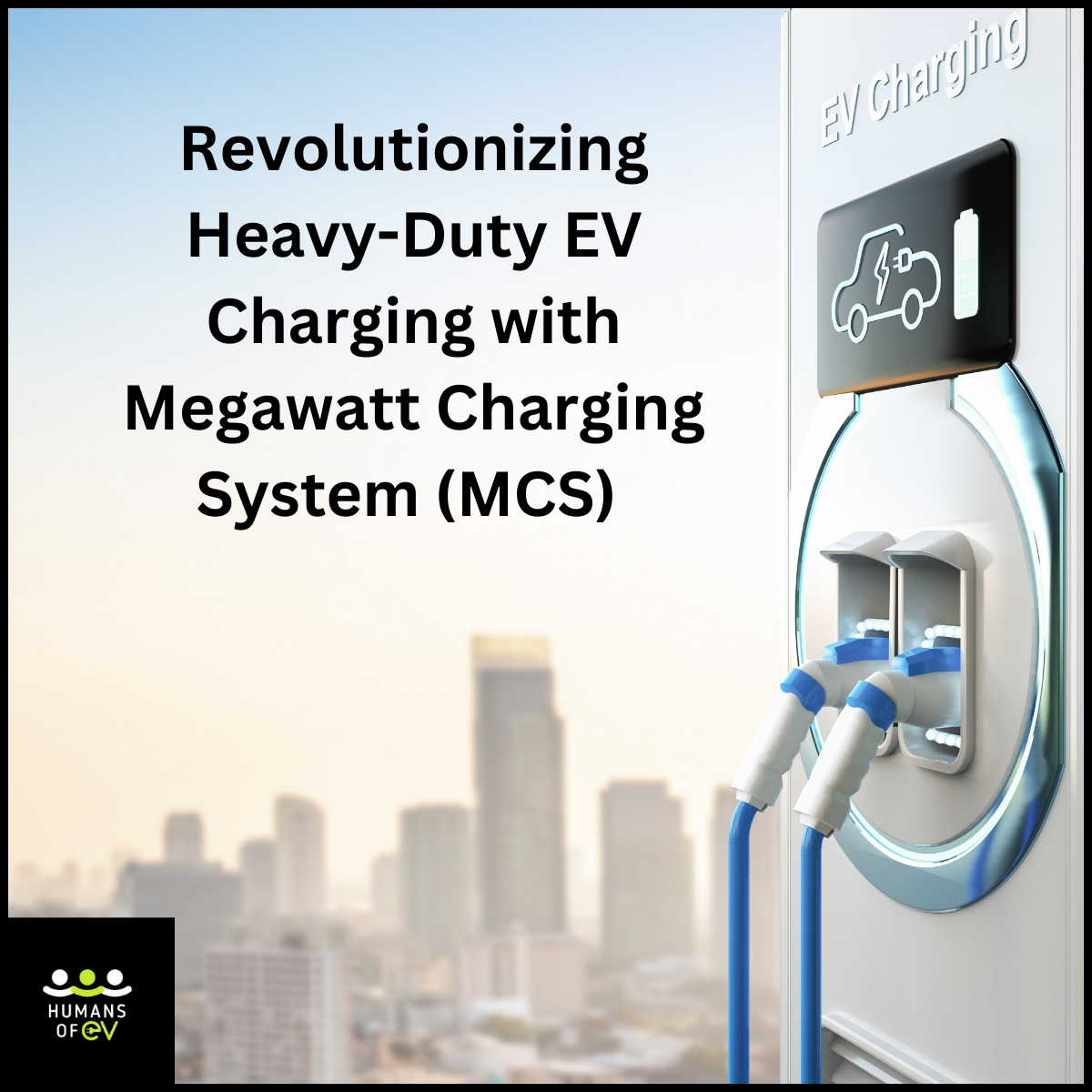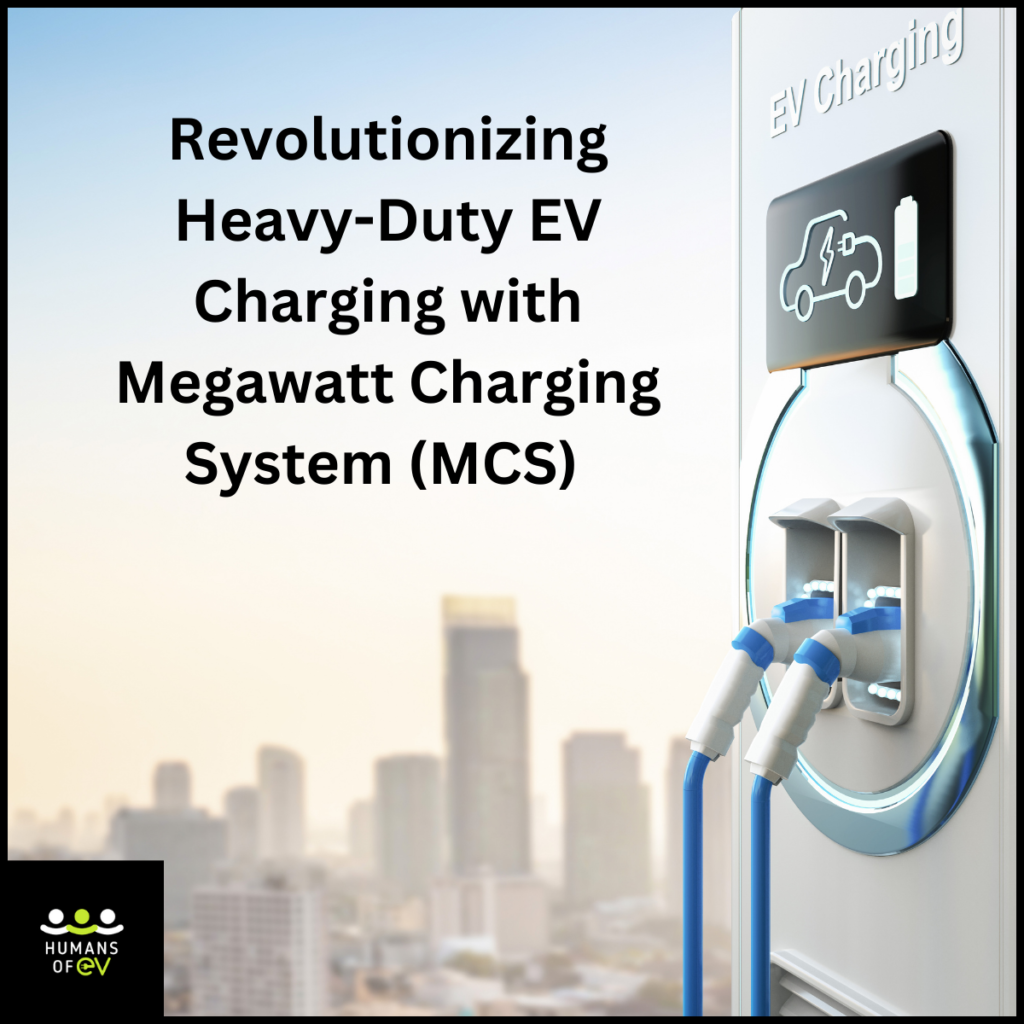
Revolutionizing Heavy-Duty EV Charging with Megawatt Charging System (MCS)

Read More
-
TWF 2026 Two-Wheeler Three-Wheeler EV Forum Returns to Drive Mobility Innovation in India
-
Pluto Mobility Raises $2 Million Seed Funding to Develop Delivery-Grade EVs
-
Statiq Raises ~$18 Million to Scale EV Charging Infrastructure Across India
-
ThunderPlus and Indofast Energy Join Forces to Build Integrated EV Hubs Across India
-
The Green Route by HEV February, 2026 Volume 1 Issue 11

The shift towards electrification in the transportation sector is gaining momentum, particularly for heavy-duty vehicles like trucks and buses. One of the most groundbreaking technologies spearheading this transformation is the Megawatt Charging System (MCS).
This innovative solution is poised to redefine long-haul transportation and logistics by offering rapid and efficient charging for large electric vehicles.
What is the Megawatt Charging System (MCS)?
The Megawatt Charging System (MCS) represents a significant leap forward in EV charging technology. Unlike conventional chargers, which often take hours to recharge heavy-duty electric trucks and buses, MCS is designed to deliver up to 3.75 megawatts (MW) of power. This capability allows electric vehicles to recharge in just minutes, significantly reducing downtime and enhancing operational efficiency.
MCS operates with a specially designed connector that can handle high voltage (up to 1,250 volts) and high current (up to 3,000 amps). This robust infrastructure ensures not only rapid but also safe and efficient charging. Integrated cooling systems and touch-safe designs further enhance reliability and user safety, addressing one of the primary concerns associated with high-power charging.
Industry Leaders and Pilot Projects
Key industry players are already embracing MCS technology and leading the charge towards its commercial rollout. Major companies such as ABB, Siemens, Tesla, and Volvo are at the forefront of pilot projects in Europe and North America. These initiatives are crucial in testing and refining the technology to ensure it meets the rigorous demands of real-world applications.
Charging infrastructure companies like Kempower and Greenlane are strategically deploying MCS stations along major freight corridors. This thoughtful placement ensures that electric trucks and buses can recharge during mandatory rest breaks, making long-distance electric travel increasingly feasible. The goal is to create a comprehensive network of MCS stations that supports the widespread adoption of electric heavy-duty vehicles.
Technological Innovations and Safety Features
The MCS technology is not just about rapid charging; it also emphasizes reliability and safety. Companies like Cavotec, Huber+Suhner, and Phoenix Contact are developing advanced cables and connectors capable of handling the immense power transfer required for MCS. These components are integral to ensuring that the system operates smoothly and safely under high-load conditions.
The MCS connectors are equipped with integrated cooling systems to manage the heat generated during charging. This feature is essential for maintaining the performance and longevity of the charging equipment. Additionally, the touch-safe designs prevent accidental contact with live components, adding an extra layer of safety for users.
The Impact on Sustainable Logistics
The implementation of MCS is a pivotal step towards reducing downtime for electric trucks and cutting emissions in the logistics sector. By enabling faster and more efficient charging, MCS supports the transition to greener transportation solutions. This shift is crucial for meeting global sustainability goals and fostering a more eco-friendly logistics network.
As we look towards the future, the Megawatt Charging System promises to play a significant role in the evolution of the transportation industry. Its capacity for rapid recharging, coupled with a focus on safety and reliability, makes it a game-changer for long-haul electric travel. The collaborative efforts of industry leaders and infrastructure providers are setting the stage for a more sustainable and efficient future in transportation.


